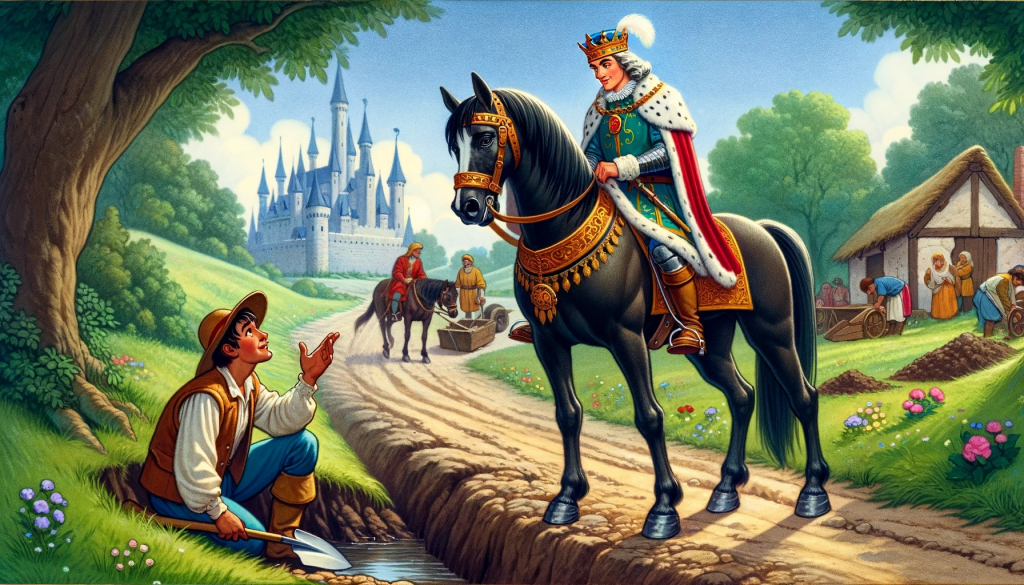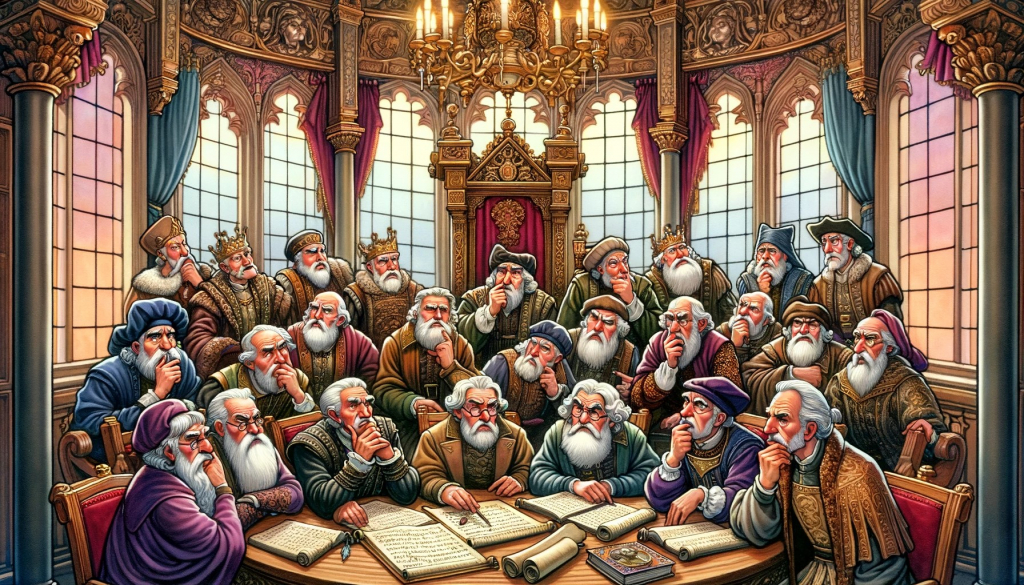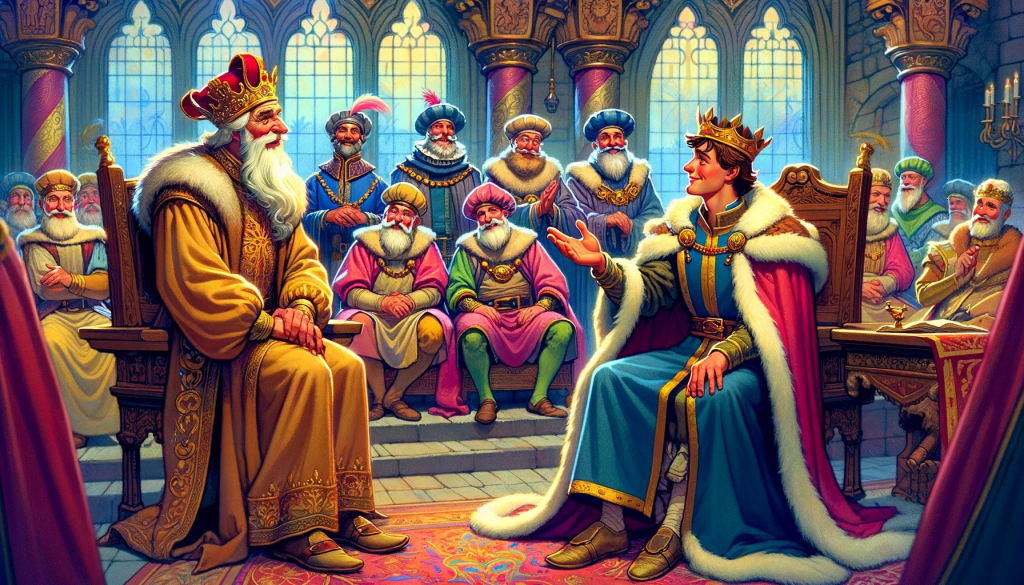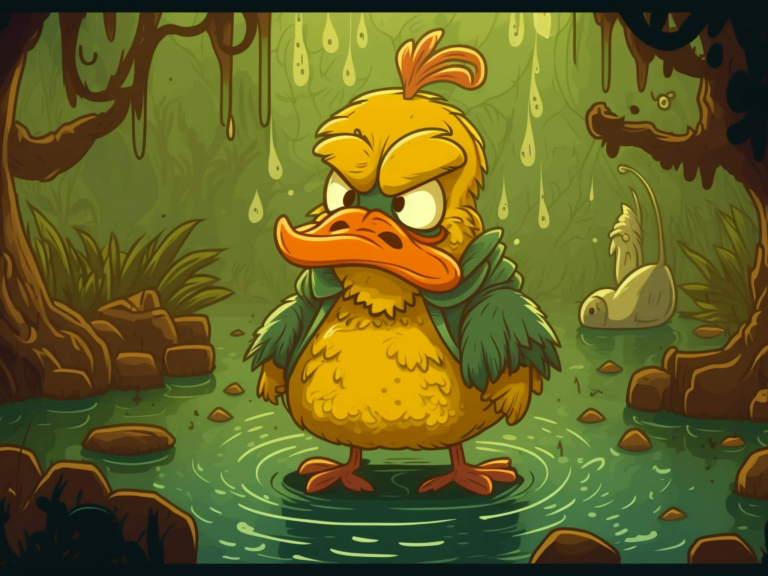Once upon a time there lived a poor man who dug ditches along the side of the road leading to the king’s castle.

One day, as luck would have it, the king himself happened to ride along that road. Seeing the man hard at work, the king called out to him, “Good sir, what wages do you earn in a day for this difficult labor?”

“Why, your majesty, I earn three pennies a day,” replied the poor man.
The king was astonished. “How can you live on just three pennies a day?” he asked.
“Oh, it’s not so hard to just live, your grace. But you see, of those three pennies, the first I give back, the second I lend, and only on the third do I live.”
Now the king scratched his head in confusion. He simply could not understand how one could give back, lend, and live all on three pennies a day. Admitting his puzzlement, the king requested the poor man explain.
“You see, your majesty,” said the man, “I care for my elderly father who can no longer provide for himself – to him I give back, for he raised me. I also have a young son whom I lend to, so that he may return the favor when I am old. And on the third penny I live.”
c”Ah, I understand,” said the king, nodding. “Yet this perplexes me further, for you see, I have twelve wise advisors, and the more I pay them, the more they complain of not having enough to live on. I shall present them with your riddle – if they cannot solve it in three days’ time, I will banish them from the kingdom for eating my bread in vain.”

The king rewarded the poor man with a handful of gold coins for his wisdom, and returned to the castle. He summoned his twelve advisors and posed the riddle to them. But try as they might, none could decipher the poor man’s secret over the next three days.
Finally, on the morning of the third day, desperate for an answer, the advisors sought out the ditch digger. They pleaded and threatened, but he stood firm, replying that he could not break his word to the king unless they produced the royal portrait.
Of course the advisors had no such portrait. But their need was great, so they tried bribing the man with offers of riches. At last, laughing at their incompetence, the man pulled from his pocket one of the gold coins gifted by the king.
“Behold, here is the king’s image. Now I can tell all,” said the man. And so the puzzled advisors finally got their answer.
On the third day, the advisors easily repeated the solution to the king. But the king, sensing the trick, summoned the poor man and said, “Good sir, how is it you have disobeyed me?”
“I did not, sire,” said the man, showing the coin bearing the royal portrait. He told the king of the advisors’ pleadings and bribery.
“Since you possess more wisdom than my twelve advisors,” proclaimed the king, “you shall live in my court as a nobleman, and sit beside me in council.”
And to the humbled advisors he said, “For your folly, not only shall I not increase your wages, but I shall dock your pay!”

And so the wise poor man dwelt in the king’s court, and the advisors never again asked for raises.
The end.





The Three Pennies